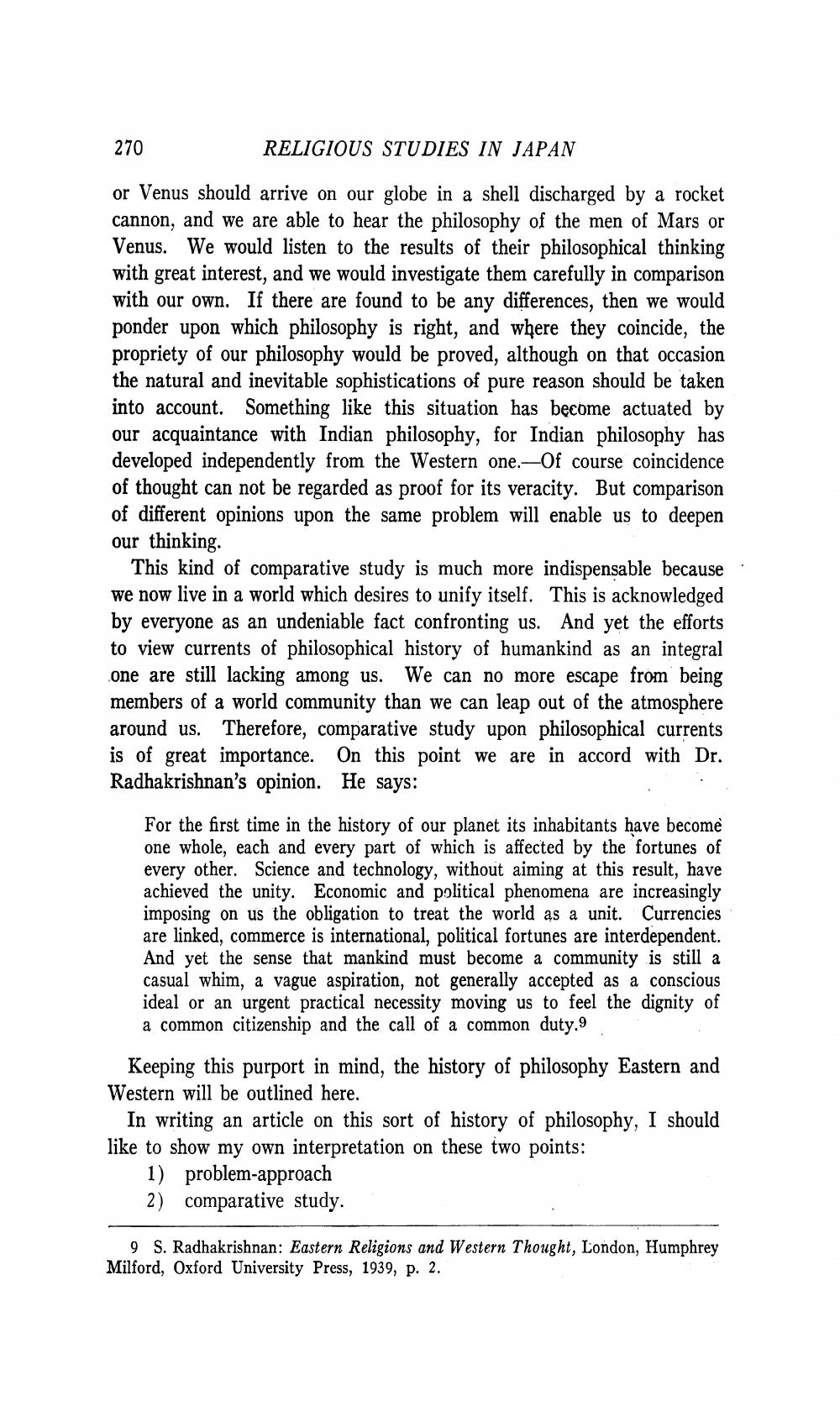Book Title: New Way Of Approach In Buddhist Studies Author(s): Hajime Nakamura Publisher: Hajime Nakamura View full book textPage 8
________________ 270 RELIGIOUS STUDIES IN JAPAN or Venus should arrive on our globe in a shell discharged by a rocket cannon, and we are able to hear the philosophy of the men of Mars or Venus. We would listen to the results of their philosophical thinking with great interest, and we would investigate them carefully in comparison with our own. If there are found to be any differences, then we would ponder upon which philosophy is right, and where they coincide, the propriety of our philosophy would be proved, although on that occasion the natural and inevitable sophistications of pure reason should be taken into account. Something like this situation has become actuated by our acquaintance with Indian philosophy, for Indian philosophy has developed independently from the Western one. Of course coincidence of thought can not be regarded as proof for its veracity. But comparison of different opinions upon the same problem will enable us to deepen our thinking. This kind of comparative study is much more indispensable because we now live in a world which desires to unify itself. This is acknowledged by everyone as an undeniable fact confronting us. And yet the efforts to view currents of philosophical history of humankind as an integral one are still lacking among us. We can no more escape from being members of a world community than we can leap out of the atmosphere around us. Therefore, comparative study upon philosophical currents is of great importance. On this point we are in accord with Dr. Radhakrishnan's opinion. He says: For the first time in the history of our planet its inhabitants have become one whole, each and every part of which is affected by the fortunes of every other. Science and technology, without aiming at this result, have achieved the unity. Economic and political phenomena are increasingly imposing on us the obligation to treat the world as a unit. Currencies are linked, commerce is international, political fortunes are interdependent. And yet the sense that mankind must become a community is still a casual whim, a vague aspiration, not generally accepted as a conscious ideal or an urgent practical necessity moving us to feel the dignity of a common citizenship and the call of a common duty.9 Keeping this purport in mind, the history of philosophy Eastern and Western will be outlined here. In writing an article on this sort of history of philosophy, I should like to show my own interpretation on these two points: 1) problem-approach 2) comparative study. 9 S. Radhakrishnan: Eastern Religions and Western Thought, London, Humphrey Milford, Oxford University Press, 1939, p. 2.Page Navigation
1 ... 6 7 8 9 10 11 12 13 14 15 16 17 18 19 20 21
